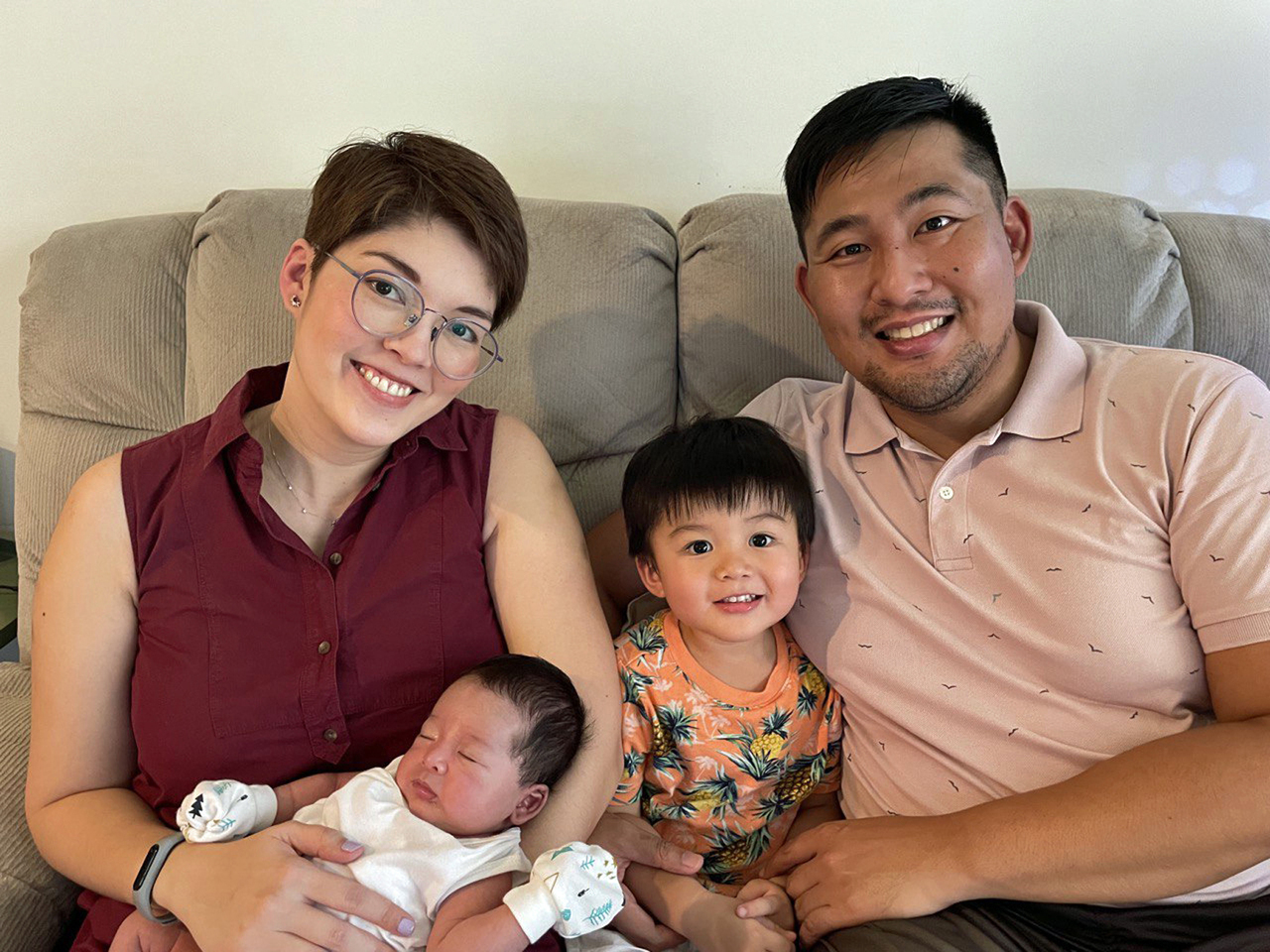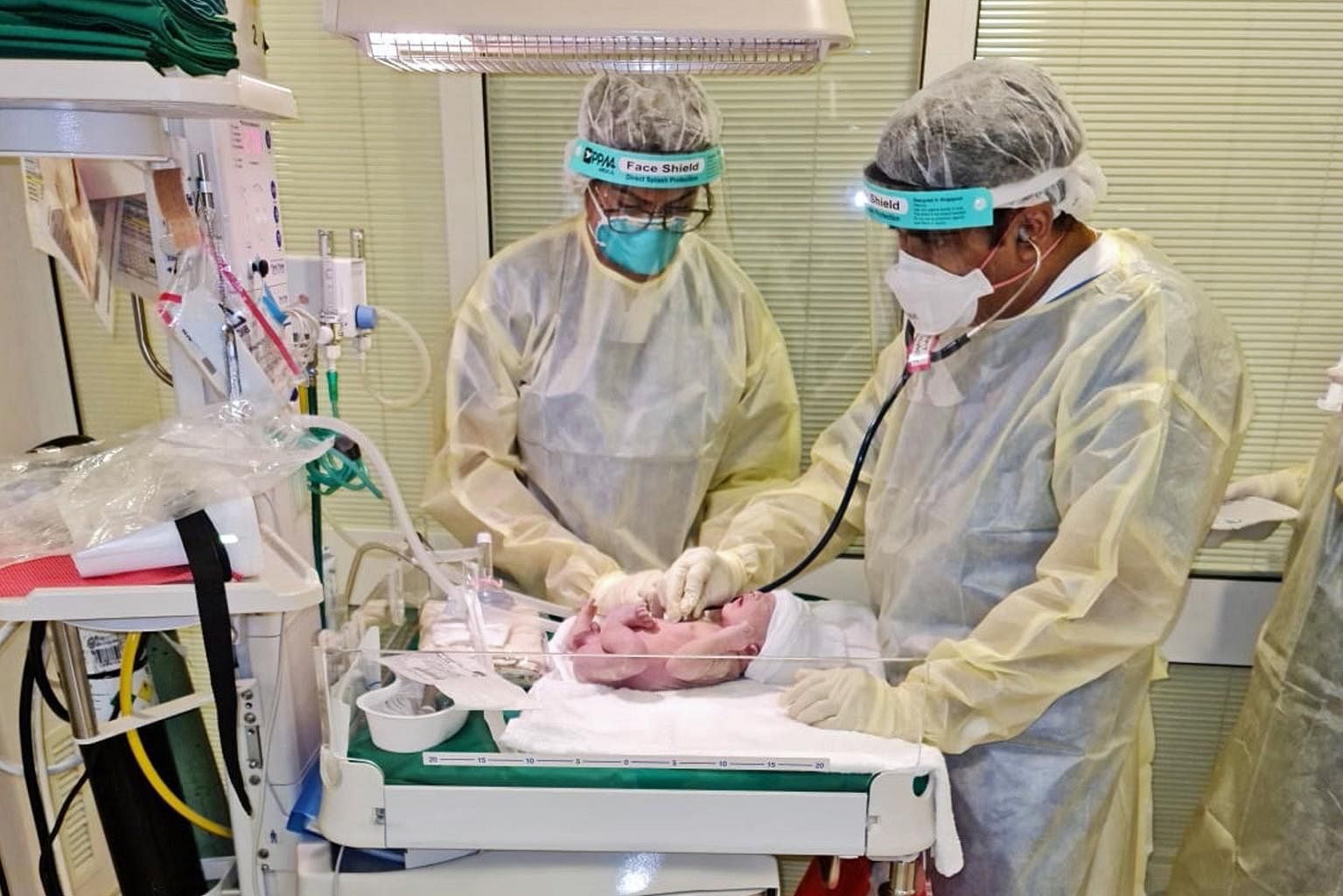Woman who gave birth in isolation ward after contracting Covid-19 urges others to get vaccine
Sign up now: Get ST's newsletters delivered to your inbox

Ms Vanessa Rickard with her husband Carlos Cruz, their 2.5-year-old son, and their newborn son. She had caught Covid-19 in August.
PHOTO: SGH
SINGAPORE - An unvaccinated woman who contracted Covid-19 late in her pregnancy is urging others who are pregnant to get vaccinated, after she had to give birth in an isolation ward.
When Ms Vanessa Rickard, 36, became pregnant in December last year, Singapore had just begun its national vaccination programme. Not much was known about the effects of Covid-19 vaccines on pregnant women and their foetuses then.
When pregnant women were finally able to register for vaccination from June 4 this year, Ms Rickard, a Filipino employment pass holder who works in the banking sector, decided to wait it out for a few more months.
"I decided that maybe I'll just wait until I give birth and then get the vaccination after that, because I wasn't sure what the effect would be on my baby," she said on Thursday (Sept 16).
She would come to regret that decision. Despite taking precautions and staying home most of the time, Ms Rickard caught Covid-19 and developed symptoms in early August.
The rest of her household - comprising her fully vaccinated husband Carlos Cruz, 33, their domestic helper and their 2½-year-old son - later tested positive for the virus as well.
By then, Ms Rickard was 37 weeks into her pregnancy. A typical pregnancy lasts about 40 weeks. She was admitted to an isolation ward at Singapore General Hospital (SGH), where she gave birth about a week later.
The unusual setting meant her care team needed to bring specialised equipment into her ward, including a cardiotocography machine to monitor contractions and foetal heart rate.
Ms Rickard opted to be separated from her newborn son for 2½ weeks after the birth to ensure he would not be infected. The baby has been doing fine.
Her illness was not severe and both she and her family are now well, but she said she experienced much anxiety during those weeks in isolation as she waited to be cleared of the virus.
Dr Tan Wei Ching, a senior consultant at SGH's obstetrics and gynaecology department, said the hospital started seeing a steady stream of pregnant patients with Covid-19 in the past month.
Such cases rose from none in July to at least 10 cases since the beginning of August, likely driven by the more infectious Delta variant.
Like Ms Rickard, many of these patients are unvaccinated as they may have had concerns about the possibility of vaccine-induced foetal abnormalities, Dr Tan said.

But she noted that studies have shown the vaccines to be safe for patients at any stage of pregnancy.
"In fact, not getting vaccinated carries an even higher risk for these patients, especially in the later part of pregnancy, because they're at higher risk of severe disease and getting admitted to intensive care."


